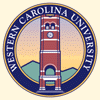
STATEMENT OF TEACHING PHILOSOPHY
ROBERT F. MULLIGAN, Ph.D.
I. PHILOSOPHY

I. PHILOSOPHY
My teaching philosophy emphasizes three aims for innovation: broadening students’ intellectual perspectives, reinforcing the relevance of the discipline through current, real-world applications, and promoting students’ language and analytical skills.
Course design addresses these aims to fit the broader academic context, accommodating the requirements of many complementary disciplines and academic majors. My aim is to introduce students to as broad a universe of knowledge as possible, and to stimulate their appetite for further, life-long learning.
Relating abstract paradigms to current, practical applications whets student interest and deepens appreciation of the subject while highlighting applicability in other courses. Participation in a free society calls for highly-developed communication skills and analytical or abstract reasoning skills. Developing the first is a key component of, and precondition for, developing the second.
II. BROADENING INTELLECTUAL PERSPECTIVES
The supplemental readings were selected to provide a commonality of intellectual experience and a basis for meaningful class discussion. The range of experience accessed here is staggering, and thus, ideally suited for teaching. Readings were selected both for their importance in the history of economic thought and their impact and relevance in other disciplines. Each reading deals with issues of continuing importance, has contributed to one or more disciplines outside economics, has a continuing influence on world culture, and possesses acknowledged historic significance. Experience has led me to emphasize those classics of economics which are also classics of literature. <<http://www3.wcu.edu/~mulligan/supreads.html>>
I also interject my own interests into what I teach, which often results in a highly memorable and individualistic presentation, e.g., I lecture on statistical quality control and describe economic pros and cons of different processes for steel manufacture in microeconomics. I often draw on the fine arts and literature, using the Wizard of Oz to illustrate the politics of bimetallism, and pointing out the earliest citation of Gresham's law by Aristophanes. <<http://www3.wcu.edu/~mulligan/moneybankpage.html>>
III. INJECTING CURRENCY AND REAL-WORLD FOCUS
Powerpoint presentations have been augmented with visual aids, including historic banknotes, stock certificates, bonds, and corporate logos, to enliven the discussion in principles and money and banking. Special efforts are made to discuss firms and industries where our alumni work.
A large number of hyperlinks are provided on the instructional websites. The Alumni Page has links to employers where available, with a link to a job search resources page. Instructional websites are projected in the classroom to demonstrate features and resources, and linked websites are also used for instructional purposes, including the universal currency converter, Yahoo’s finance page, a website used to track the stock portfolio, and instructional JAVA applets. <<http://wcuvax1.wcu.edu/~mulligan/alums.html>> & <<http://www3.wcu.edu/~mulligan/classes.html>>
IV. PROMOTING LANGUAGE AND ANALYTICAL PROFICIENCY